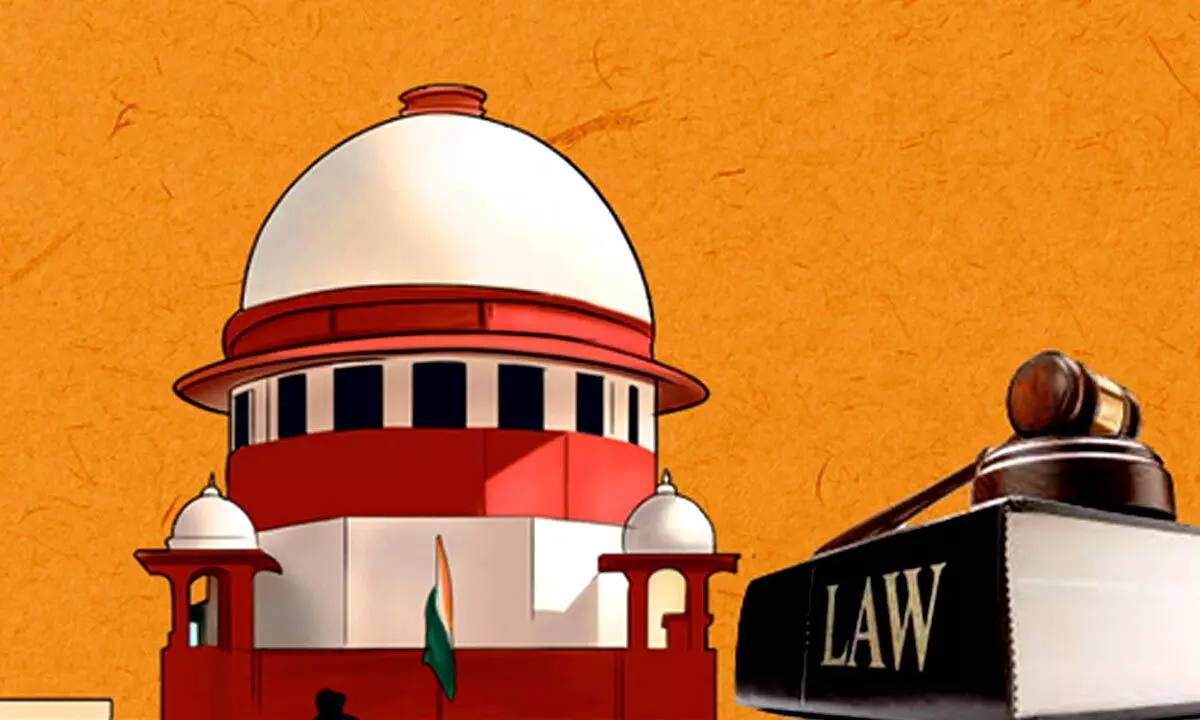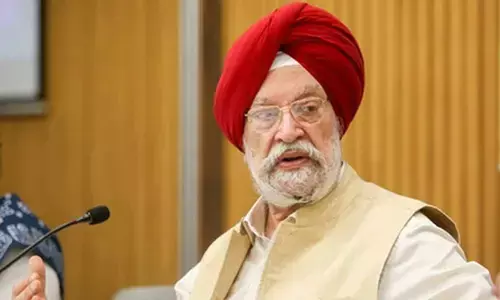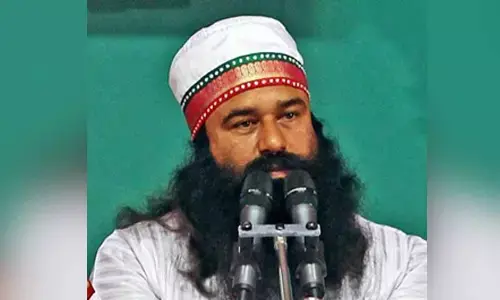Crucial to electoral democracy that freedom to vote not subjected to undue influence: Supreme Court
Share :

It is crucial to electoral democracy that the exercise of freedom to vote is not subject to undue influence, the Supreme Court said on Thursday while striking down as unconstitutional the electoral bonds scheme for political funding.
NEW DELHI: It is crucial to electoral democracy that the exercise of freedom to vote is not subject to undue influence, the Supreme Court said on Thursday while striking down as unconstitutional the electoral bonds scheme for political funding.
The apex court said the expression of political beliefs is guaranteed under Article 19(1)(a) of the Constitution, and forming political beliefs and opinion is the first stage of political expression.
A five-judge constitution bench headed by Chief Justice D Y Chandrachud said the freedom of political expression cannot be exercised freely in the absence of privacy of political affiliation.
"Information about a person's political beliefs can be used by the State at a political level, to suppress dissent, and at a personal level, to discriminate by denying employment or subjecting them to trolls," Justice Chandrachud, who penned the verdict for himself and on behalf of Justices B R Gavai, J B Pardiwala and Manoj Misra, said.
"The lack of privacy of political affiliation would also disproportionately affect those whose political views do not match the views of the mainstream," the CJI said.
Justice Sanjiv Khanna wrote a separate verdict and gave different reasons for concurring with the judgement authored by the CJI.
The CJI referred to a nine-judge bench verdict of the apex court which had held that the Constitution guarantees right to privacy.
"The content of privacy is not limited to 'private' actions and decisions such as the choice of a life partner, procreation and sexuality. Neither is privacy merely defined from the point of direct State intrusion," he said.
"In the specific context of exercising electoral franchise, the lack of privacy of political affiliation would be catastrophic. It is crucial to electoral democracy that the exercise of the freedom to vote is not subject to undue influence," Justice Chandrachud said.
He noted that information about a person's political affiliation can be used to disenfranchise voters through voter surveillance, and at a systemic level, information secured through voter surveillance could be used to invalidate the foundation of the electoral system.
"Information about political affiliation could be used to engage in gerrymandering, the practice by which constituencies are delimited based on the electoral preference of the voters," the bench said.
It said informational privacy to political affiliation is necessary to protect the freedom of political affiliation and exercise of electoral franchise.
"Having concluded that the Constitution guarantees a right to informational privacy of political affiliation, it needs to be decided if the right can be extended to the contributions to political parties," it said.
The apex court said the electoral bonds scheme has two manifestations of privacy -- informational privacy by prescribing confidentiality vis-a-vis the political party, and informational privacy by prescribing non-disclosure of the information of political contributions to the public.
It noted the issue before the court was not whether public funding of political parties was permissible or whether a restriction can be placed on the contribution which can be made by a citizen to a political party.
"If it was, then the question of whether financial contribution to a political party is in furtherance of the right to freedom of political speech and expression under Article 19(1)(a) or the right to freedom to form associations under Article 19(1)(c) would arise," the bench said.
"However, that not being the case, this court is not required to decide whether financial contribution to a political party is protected by Articles 19(1)(a) and 19(1)(c)," it said.
Referring to the close association of money and politics, the bench said money was not only essential for electoral outcomes and for influencing policies, it was also necessary for true democratic participation.
"It is necessary for enhancing the number of political parties and candidates contesting the elections which would in-turn impact the demographics of representatives in the Assembly. It is true that contributions made as quid pro quo transactions are not an expression of political support," it said.
"However, to not grant the umbrella of informational privacy to political contributions only because a portion of the contributions is made for other reasons would be impermissible. The Constitution does not turn a blind eye merely because of the possibilities of misuse," the bench said.
It said one of the issues before it was whether the right to privacy of political contributions can be extended to include privacy vis-a-vis the political party to which contributions are made, as according to the Centre, under this scheme, the political party to which contribution is made would not know the particulars of the contributor.
"We are unable to see how the disclosure of information about contributors to the political party to which the contribution is made would infringe political expression," it said.
It said disclosure of particulars of contributions may affect the freedom of individuals to the limited extent that the political party with the information "could coerce those who have not contributed to them".
"Under the current scheme, it is still open to the political party to coerce persons to contribute. Thus, the argument of the Union of India that the electoral bond scheme protects the confidentiality of the contributor akin to the system of secret ballot is erroneous," it said.













